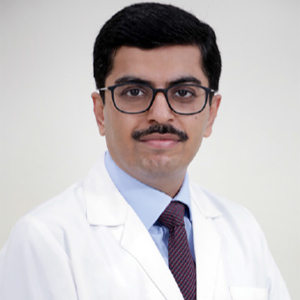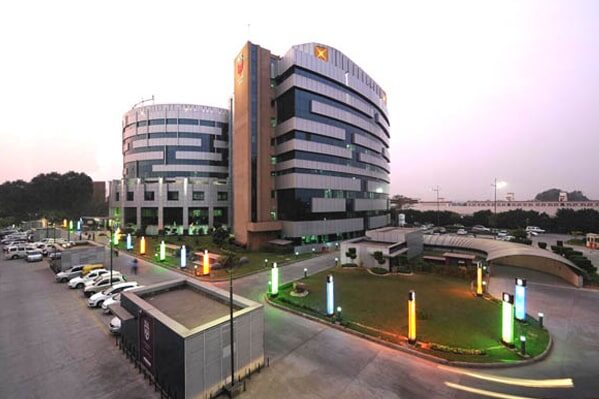Best hospital for liver transplant in India
Schedule Your Video Consultation Online.
Highest success rate for liver transplant.
Get free second opinion from India’s leading liver transplant surgeon.
Meet Dr. Abhideep Chaudhary

Dr. Abhideep Chaudhary
- Vice Chairman & HOD HPB Surgery & Liver Transplantation
- 20+ years of excellent surgical experience.
- Having successfully treated numerous patients, Dr. Abhideep Chaudhary is a leading name in the field of HPB surgery & liver transplantation. He has been widely acknowledged for his versatile and patient-centric approach.
- Performed 15000+ Successful Liver transplants. and HPB surgeries.
Why Choose Us
Highly experienced, dedicated team of BLK-Max Doctors, surgeons and paramedics
Cutting edge technology and top of the line equipment to support the program
Unique set-up for pre-surgery planning and virtual surgery in liver transplant patients and donors to make these operations more safe and precise.
State-of the art modular operating theatres designed especially for liver and laparoscopic surgery
Dedicated comprehensive international patients' division with door-to-door services and round-the clock interpreter services
Excellent patient coordination and administrative services support
Evidence-based, patient-centric, ethical medical practices
Priority services
Fully automated systems to minimize human error
Isolated Ultra-Clean Ventilated dedicated Liver ICU
Unique infection control systems
Comfortable day-care facilities for minor proceduresfor out-patients
Conveniently located in the heart of city with a lot of options for stay
Affordable reasonable pricing
FAQs about Liver Transplantation
- Who requires a Liver Transplant?
- What are the types of Liver Transplants?
- Who can donate?
- What are the positive aspects of liver donation?
- Donor recovery period
- Need of Immunosuppressant Drugs
Liver Transplant may be necessary for patients who suffer from:
-
Liver damage due to Alcoholism
-
Long-term (chronic) active infection (Hepatitis B or C)
-
Primary Biliary Cirrhosis
-
Chronic Liver disease due to HCC
-
Birth defects of the Liver or Bile Ducts (Biliary Atresia)
-
Metabolic disorders associated with Liver failure (e.g. Wilson’s disease, Haemochromatosis)
-
Acute Liver Failure
Liver failure causes many problems, including malnutrition, problems with Ascites, Blood Clotting, Bleeding from the Gastrointestinal Tract and Jaundice. In most cases, patients who undergo Liver Transplant are very sick. They are hospitalised prior to surgery.
A healthy Liver is obtained either from a living donor or from a donor who has recently died (brain dead), but has not suffered Liver injury. The diseased Liver is removed through an incision made in the upper abdomen and the new Liver is put in place and attached to the patient’s blood vessels and bile ducts. This procedure can take upto 12 hours to complete and may require large volumes of blood transfusions.
Patients are required to stay in the hospital for 3 to 4 weeks after the Liver Transplant, depending on the degree of illness. After the transplant, patients must take immunosuppressive medicines for the rest of their lives to prevent rejection of the transplanted organ by the body.
A Liver is obtained from either a deceased or a living donor.
Deceased Donor
A Liver can be obtained from patients who are brain dead (declared dead clinically, legally, ethically and spiritually). Once a brain dead patient is identified and deemed as a potential donor, the blood supply to his body is maintained artificially. This is the principle of deceased organ donation. Young patients who die due to accidents, brain haemorrhage or other causes of sudden death are considered suitable donor candidates
Living Donor
The Liver has an amazing ability to regenerate itself if a part of it is removed. It takes the Liver 4 to 8 weeks to regenerate after the surgery. That’s why a healthy person can donate a part of his Liver. In a Live Donor Liver Transplant, a portion of the Liver is surgically removed from the live donor and transplanted into a recipient, immediately after the recipient’s Liver has been entirely removed.
Doctors, transplant coordinators and other healthcare professionals who form the Liver Transplant Team, with their experience, skill and technical expertise select the best donor for a living Donor Liver Transplant.
Potential live Liver donors are carefully evaluated and only those in good health are considered. The donor will be evaluated or cleared for donation by the Authorisation Committee. The health and safety of the donor is the most important parameter during the evaluation.
The potential donor should:
-
Be a close or first degree relative or spouse
-
Have a compatible blood type
-
Be in overall good health and physical condition
-
Be older than 18 years of age and younger than 55 years of age
-
Have a near normal body mass index (not obese)
The donor must be free from:
-
History of Hepatitis B or C
-
HIV infection
-
Alcoholism or frequent heavy alcohol consumption
-
Any drug addiction
-
Psychiatric illness currently under treatment
-
A recent history of cancer
The donor should also have the same or compatible blood group
Blood group compatibility chart
| Patient Blood Group | Donor Blood Group |
| A | A or O |
| B | B or O |
| AB | A, B, AB or O |
| O | O |
Note: The Rh factor (+/-) of the blood type is not important in compatibility.
-
Gifting an organ can save the life of a transplant candidate
-
Donors have reportedly experienced positive emotions, including feeling good about giving life to a dying person
-
Transplants can greatly improve recipient’s health and quality of life, allowing them to return to a normal life
-
Transplant candidates generally have better results when they receive organs from living donors as compared to organs from deceased donors
-
Better genetic matches between living donor and recipients may decrease risk of organ rejection
-
A living donor makes it possible to schedule the transplant at a time that is convenient for both the donor and the transplant candidate
The surgery and recovery process vary in different cases. If you are thinking of becoming a donor then you should consult the hospital transplant team to understand what to expect. You can also consider talking with other donors. As a Liver donor, you may stay in the hospital for upto 10 days or longer in some cases. The Liver typically regenerates in two months. Most Liver donors return to work and resume normal activities in about three months, although some may need more time.
Our body isn’t designed to readily accept another person’s organs. It’s the body’s natural instinct to attack and destroy a transplanted organ as a defence mechanism. Anti-rejection drugs make the defence mechanism weak against the transplanted organ and allow the Liver graft to sustain and work normally.
By PulseCure

- Helping patients to select hospital based on genuine rankings
- Getting free opinion from doctors on treatment plan and costs
- Helping patients to get their appointment, pre-surgery tests, surgery,
day assistance, discharge summary etc. - Providing all logistical support including pick-up from airport, hotel or rest house arrangements for attendants, local mobile sim cards etc.
- Enabling patients to connect with multiple hospitals through our dedicated online technology platform

